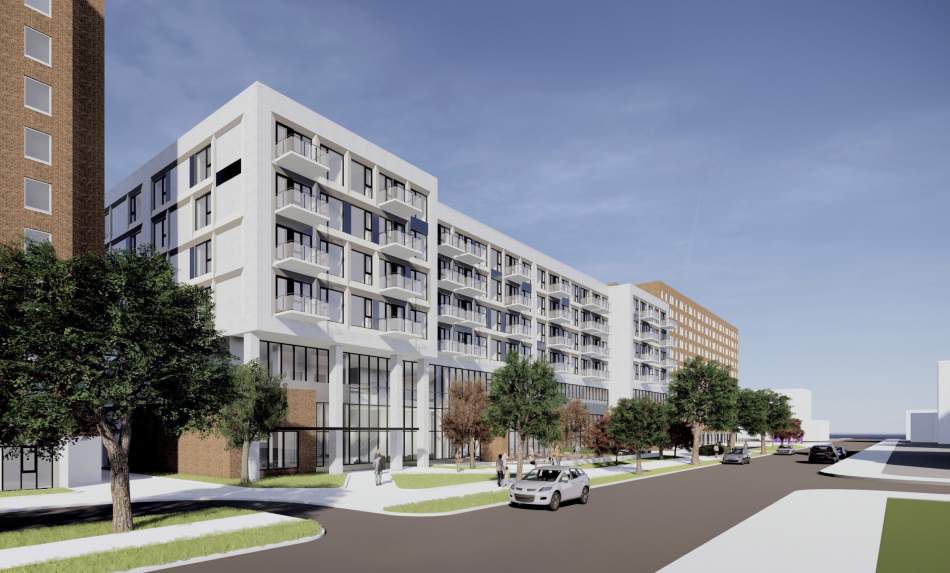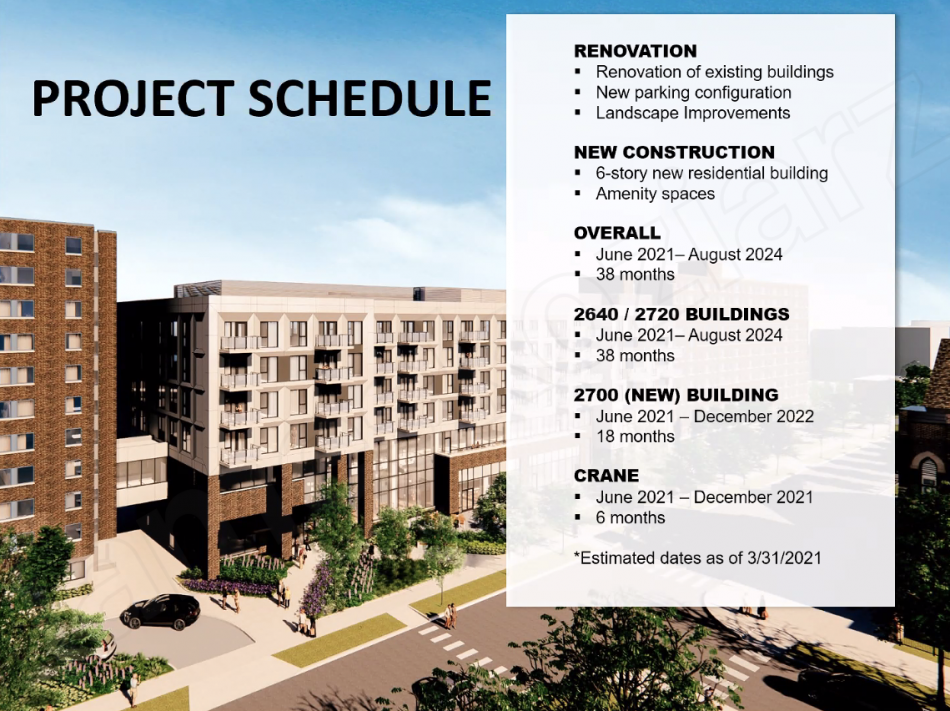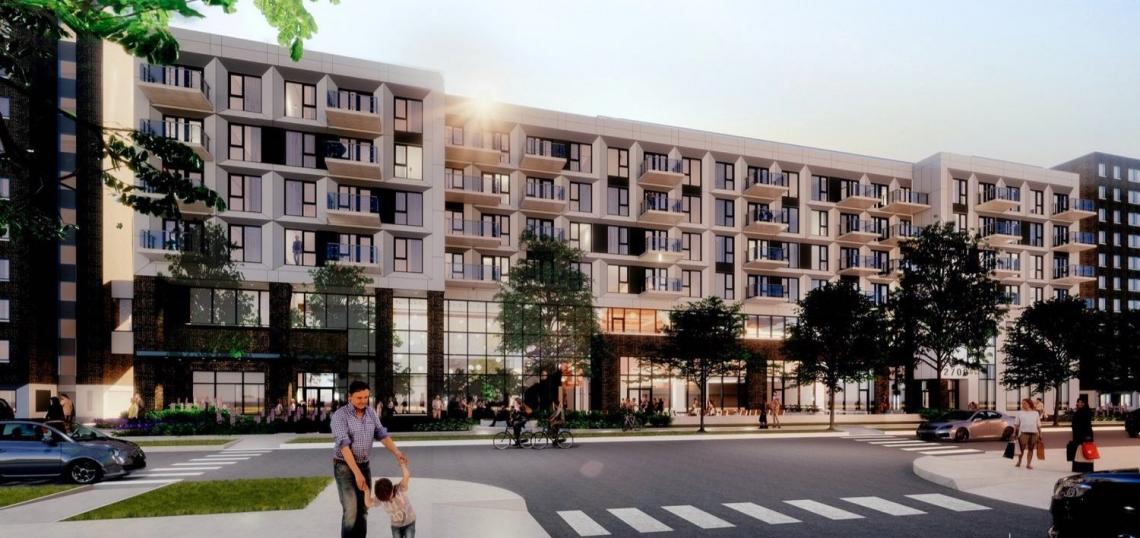A multiphase project that would renovate and expand a dated 1960s-era Chicago Housing Authority senior apartment complex is preparing to break ground on the 2700 block of N. Sheffield Avenue in Lincoln Park.
The city recently issued a $35 million building permit for the redevelopment of the Edith Spurlock Sampson Apartments, but work isn't expected to fully get going until June, according to a tentative timeline shared with neighbors at a pre-construction virtual meeting hosted by Ald. Michele Smith, the CHA, and general contractor Leopardo.
The plan calls for a new six-story residential building connecting the two existing 11-story Edith Spurlock Sampson towers, which would be gutted and modernized. The renovated towers will feature a combined 405 units of senior housing plus updated amenities for residents.
 The new six-story building (center) will connect to the two senior living buildings at 2640 and 2720 N. Sheffield Avenue (left and right).43rd Ward
The new six-story building (center) will connect to the two senior living buildings at 2640 and 2720 N. Sheffield Avenue (left and right).43rd Ward
The new-construction "bridge" building between the towers will house 80 mixed-income apartments geared toward accomodating Lincoln Park families. The property will also get new landscaping and 21 parking spots added to the site's existing 29 spaces.
Approved by the Chicago Plan Commission and City Council in late 2019, the project is a joint venture between the CHA and Ohio-based affordable housing developer PIRHL. The design comes from Ratio Architects.
Lincoln Park has seen little new multifamily development in recent years despite being one of the city's most desirable—and pricy—neighborhoods. The redevelopment Edith Spurlock Sampson complex should at least allow some low- to moderate-income residents and seniors to stay in the area.
"This unique project demonstrates how CHA remains committed to its current residents as well as to finding new ways to create more opportunities for Chicago families who need affordable housing," said the Chicago Housing Authority's then-CEO Eugene E. Jones, Jr. in 2019. "This will allow us to provide an enhanced quality of living for our seniors while offering new rental housing in Lincoln Park."
Work on all three buildings is expected to be finished by August 2024, according to the most recent timeline.
 A tentative construction schedule shared with residents at this week's pre-construction meeting.43rd Ward
A tentative construction schedule shared with residents at this week's pre-construction meeting.43rd Ward







